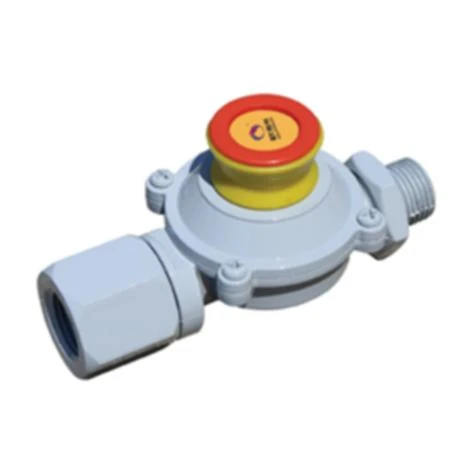
Oct . 16, 2024 16:31
Back to list
Shut-off Valve Mechanisms and Their Applications in Fluid Control Systems
Understanding the Closure Valve Types, Functionality, and Applications
In various industrial processes, the need for effective flow control is paramount, especially when it comes to the management of liquids and gases. One of the most crucial components used for this purpose is the closure valve, often referred to simply as a valve. This article aims to delve into the intricacies of closure valves, exploring their types, functionality, and applications across different sectors.
What is a Closure Valve?
A closure valve is a mechanical device designed to stop or regulate the flow of fluids within a system. These valves are essential for managing processes in industries such as oil and gas, water treatment, chemical manufacturing, and power generation. By opening or closing, closure valves help ensure the safety and efficiency of various systems.
Types of Closure Valves
There are several types of closure valves, each designed for specific applications and functionalities. The most common types include
1. Gate Valves These valves are primarily used for on/off control. They work by raising or lowering a gate within the flow path. When fully opened, gate valves provide minimal resistance to flow, making them suitable for applications where fluid flow needs to be unrestricted.
2. Globe Valves Used for regulation and throttling, globe valves have a spherical body and utilize a movable disc to control flow. These valves are particularly effective in situations where precise flow control is necessary.
3. Ball Valves Featuring a spherical ball with a hole that allows or blocks flow, ball valves are known for their quick operation and tight sealing capabilities. They are ideal for applications requiring rapid on/off control.
4. Check Valves Designed to prevent backflow, check valves automatically close when fluid attempts to flow in the reverse direction. This is critical for protecting equipment and maintaining system integrity.
5. Butterfly Valves These valves use a rotating disc to control the flow. They are lightweight, compact, and suitable for large volumes of fluid, making them popular in HVAC and water supply systems.
.
Closure valves serve multiple functions within industrial processes
صمام الإغلاق

- Flow Stopping The primary function of closure valves is to stop or start the flow of fluids. This is crucial in emergency situations where quick intervention is required.
- Flow Regulation Many types of closure valves allow for precise control over the flow rate, which is necessary to maintain optimal operating conditions in various processes.
- Pressure Management Valves can help manage pressure within pipelines, ensuring systems operate within safe limits to prevent failures or accidents.
- Isolation Closure valves provide the ability to isolate certain sections of a system for maintenance or repairs, ensuring safe operation without the need to shut down the entire system.
Applications of Closure Valves
Closure valves are utilized in a wide range of industries, including
1. Oil and Gas In this sector, valves control the transportation of crude oil and natural gas. They play a key role in safety by preventing leaks and ensuring efficient flow.
2. Water Treatment Facilities Closure valves help manage the flow of water through treatment processes, ensuring that systems operate smoothly and effectively.
3. Chemical Manufacturing In chemical processes, precise flow control is essential to maintain product quality and safety. Closure valves are crucial in managing reactive substances.
4. Power Generation Valves within power plants control the flow of steam, water, and gas, playing a vital role in energy production.
5. Pharmaceuticals In the pharmaceutical industry, strict regulatory compliance requires reliable flow control, making closure valves indispensable for maintaining hygiene and quality.
Conclusion
In summary, closure valves are integral to the functioning of a multitude of industrial systems. By understanding the various types, their functionalities, and applications, engineers and technicians can make informed decisions when selecting the appropriate valve for their specific needs. As industries continue to evolve, the importance of reliable and efficient closure valves will only increase, underscoring their role in ensuring safety, efficiency, and reliability across numerous sectors.
Next:
Latest news
-
Safety Valve Spring-Loaded Design Overpressure ProtectionNewsJul.25,2025
-
Precision Voltage Regulator AC5 Accuracy Grade PerformanceNewsJul.25,2025
-
Natural Gas Pressure Regulating Skid Industrial Pipeline ApplicationsNewsJul.25,2025
-
Natural Gas Filter Stainless Steel Mesh Element DesignNewsJul.25,2025
-
Gas Pressure Regulator Valve Direct-Acting Spring-Loaded DesignNewsJul.25,2025
-
Decompression Equipment Multi-Stage Heat Exchange System DesignNewsJul.25,2025

